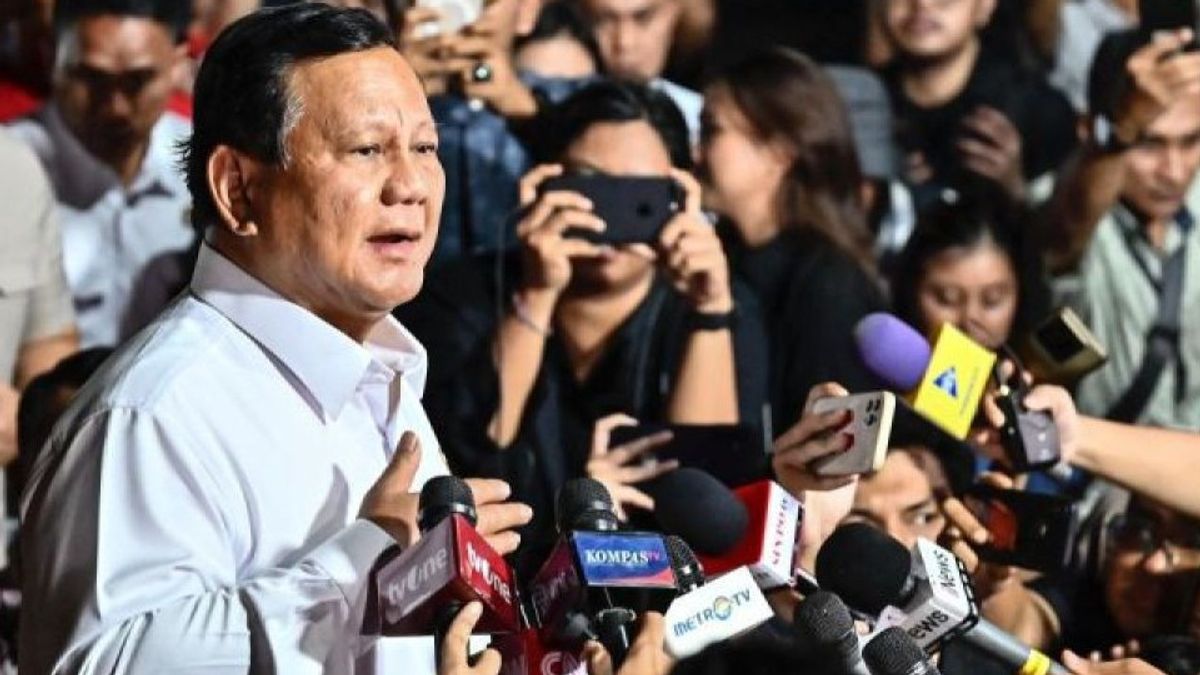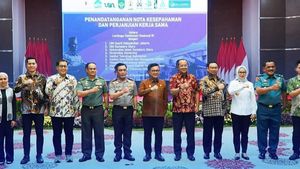JAKARTA - Indonesia's Center of Reform on Economics (CORE) senior economist Hendri Saparini said President-elect Prabowo Subianto's target of pursuing economic growth of 8 percent could be achieved if he used a comprehensive approach.
Hendri offered three approaches to achieving higher and higher quality economic growth so that Indonesia could get out of the trap of middle income traps.
First, implementing the Pancasila economic approach which is a populist economy. He alluded to the message from the founders of the Republic of Indonesia that economic activities needed to be carried out together.
This means that economic democracy is needed, namely the government involves and provides access to all parties in economic activities and advances the industry. Thus, there are no more unemployed people and have difficulty getting income because they do not have job opportunities.
"Actually, everyone can work. Only, the government needs to make economic policies so that everyone can do something productive," he said, quoted from Antara, Friday, October 18.
Second, revitalizing industry. Learning from developed countries, they managed to advance to class because they made economic leaps, especially through industrialization. Meanwhile, Indonesia recently tends to move backwards with early deindustrialization.
Therefore, industrial revitalization has the opportunity to significantly increase economic growth. This can be achieved by building a basic industry and moving all sectors throughout the region.
Furthermore, the manufacturing industry can be used as an anchor to build a backward and forward linkage between SOEs and private parties such as micro, small and medium enterprises (MSMEs).
Third, implementing more sophisticated and innovative industrial strategies and policies (sophisticated) in the midst of global changes. The government is considered to need to make the assurance industry a supporter of industrial revitalization and strengthen industrial policy instruments.
SEE ALSO:
"Services provided by a number of SOEs in the fields of quality guarantee, certification, standardization, inspection, and the like are very important to support downstream policies," he said.
He described the downstream policy of the mining industry requiring assurance in the form of validation of the calculation of nickel content, bauxite and others. With the policy for the ratification of this content, the difference between mining business actors upstream and downstream can be minimized.
The policy is also to ensure the suitability of standards agreed upon by the parties involved in mining products trading. "With the policy of determining the content of this mining material, the potential loss to the state due to disputes can also be prevented," he explained.
The English, Chinese, Japanese, Arabic, and French versions are automatically generated by the AI. So there may still be inaccuracies in translating, please always see Indonesian as our main language. (system supported by DigitalSiber.id)
















